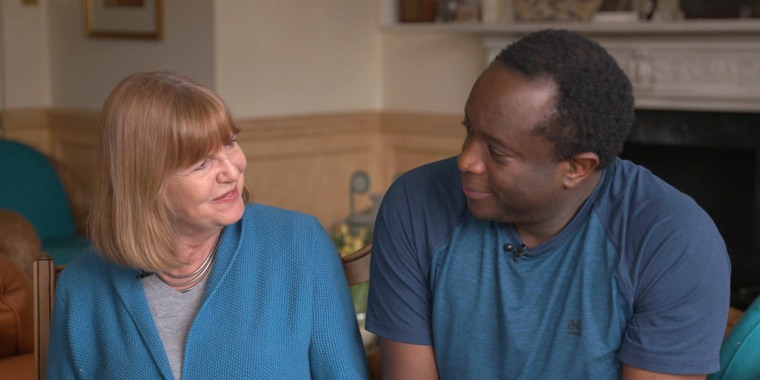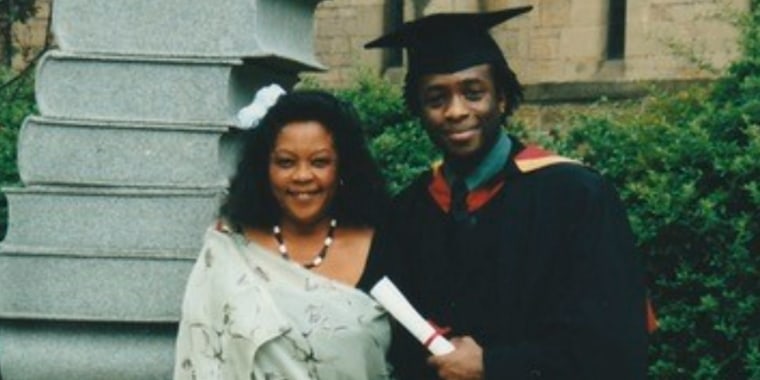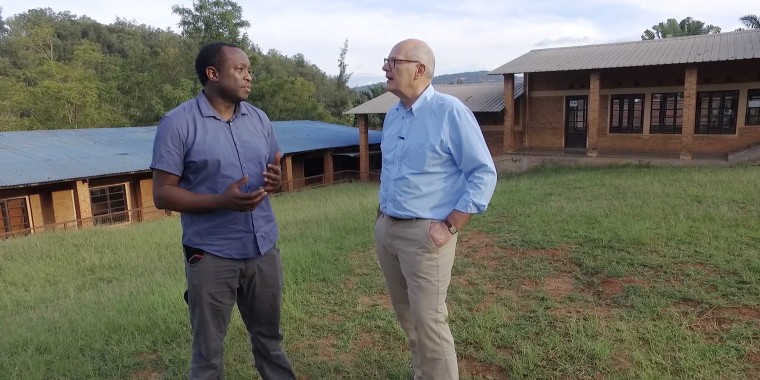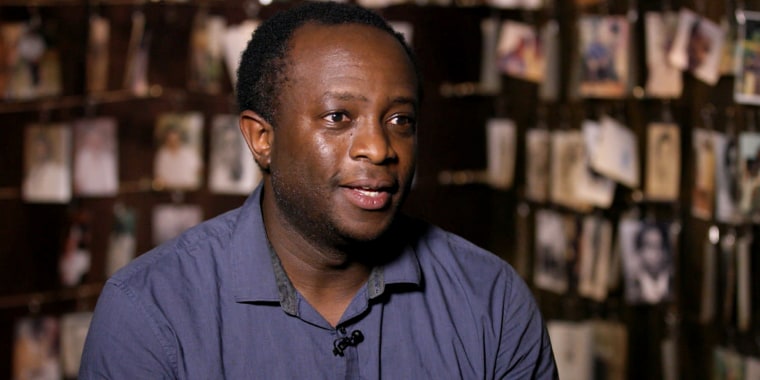Jean-Bernard "J.B." Rutagarama was a teenager when he fled his home in Rwanda, after witnessing enough torture and bloodshed to last several lifetimes.
More than two decades later, Rutagarama returns regularly to Kigali, the capital, to pay back a debt he feels for the kindness that graced his life. Now a cameraman for NBC News, he visits Rwanda to teach classes in videography.
Rutagarama brought NBC News colleague Harry Smith with him on his most recent trip. During a tour of his grade school, Rutagarama recalled the innocence of the time.
"We were kids. We didn't care who was a Hutu or Tutsi. I wish things remained that way," he said.
Last month marked the 25th anniversary of the Rwandan genocide, a mass slaughter of the ethnic Tutsi by a band of extremist Hutus supported by the government. An estimated 800,000 were killed over 100 days in a massacre that was a rapid as it was ruthless.
"I just see the faces of the people that were taken out of this world for no apparent reason, other than hate," Rutagarama said. "They died in the most awful, awful way possible."
Rutagarama thought he would be among those lost.
Half Tutsi and half Hutu, Rutagarama was a teen when he and a brother fled to the Rwandan border and ended up inside a crowded and chaotic refugee camp. A few days later Rutagarama met now-retired NBC News producer, Truus Bos.

"I hear this voice, in English, saying, 'Can I help you?' And I go, 'What? You speak English.' That was Jean-Bernard. He was sitting on a fence," she recalled.
The multilingual Rutagarama had found a job working for Australian television, so NBC hired his brother. The news team provide the teens with food and water and let them sleep in their van.
"What Truus doesn't admit, or doesn't like to admit, is that it's the little things that the NBC team did for me," Rutagarama said. "The simplest act of generosity actually saved us. It really saved our lives."
One day, an NBC cameraman asked Rutagarama if he wanted to look through his lens. The experience proved to be a formative moment.
"For that camera to have been there and show everything that was going on in the camps — the suffering, the death toll. It made people react," he said. "And then aid started coming in. I understood the power of the camera. And I guess I never looked back."

Rutagarama used the money he earned as a translator to get to an uncle in England. When that arrangement failed to work out, Bos and her late husband took him in. They eventually helped him get to college and became his second family.
"When you're out there, seeing so much misery and so much death, you feel, as a journalist, you have to witness it. You have to record it. But you're completely helpless," she said. "And to be able to do something for one of those people, was a healing experience for me, you know?"
Later, after years of freelance work and honing his craft, Rutagarama joined NBC News as a photographer in Los Angeles.

Today, he said he feels he owes a debt to those who didn't survive the genocide. For the past several years, he’s traveled to Rwanda to teach videography.
"It gives me such a joy and fulfillment that at least I've given something back," he said.
During his last trip, he stopped by to visit a cousin whose wife had just given birth. He found it remarkable to celebrate new life after all the tragedy he has witnessed.
"To have survived the genocide and now? It's just, it's beautiful."

